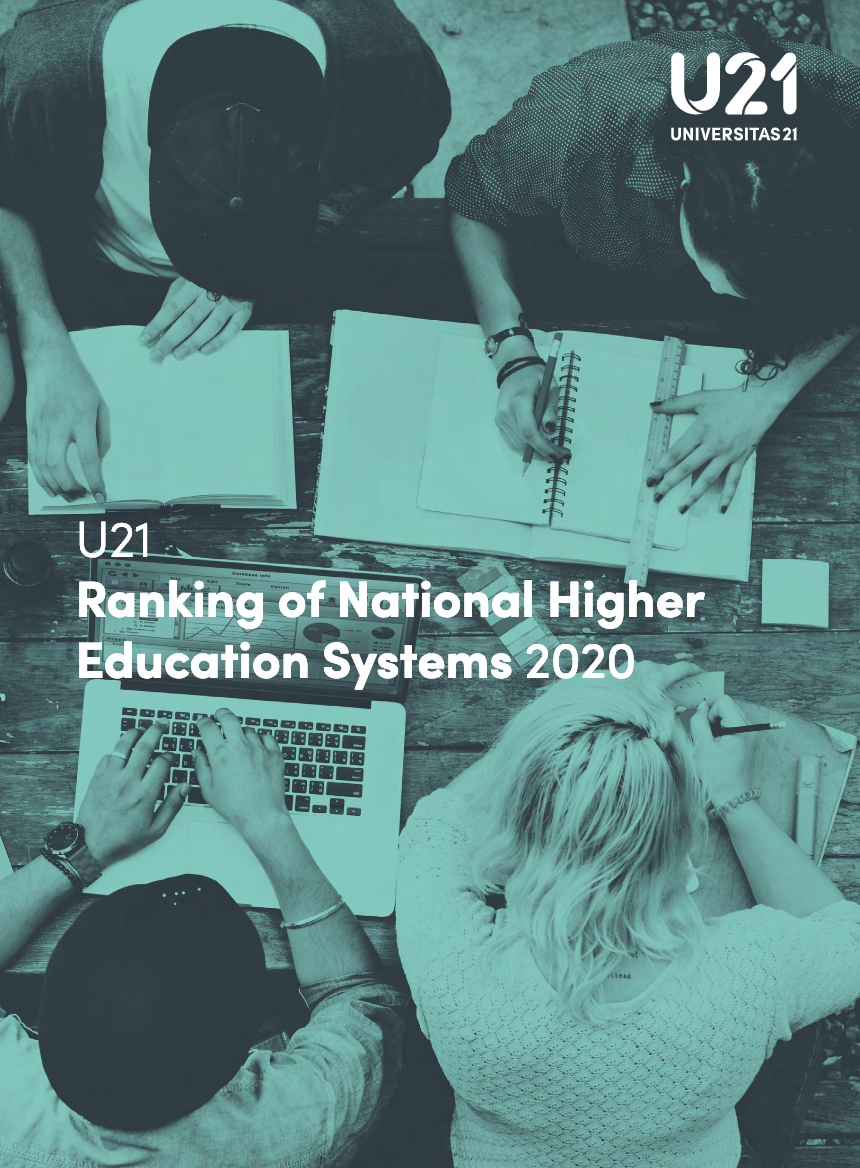U21 has published its ninth and last annual ranking of national systems of higher education, a unique report produced under the leadership of Professor Ross Williams at the University of Melbourne.

The national ranking of systems reflects the aims of higher education. These include the education and training of a nation’s people, contributing to innovation through research, and facilitating interconnections between tertiary institutions and external stakeholders, both domestic and foreign.
24 measures of performance grouped into four modules are used in the survey: Resources, Environment, Connectivity and Output examining a number of institutions within a nation. The Rankings also presents a separate report on estimates of a country’s performance relative to its level of GDP per capita.
-
The last in these ranking reports shows strong relationship between increases in research funding and measurable increases in research performance after three or four years.
-
The project has demonstrated that International connectivity (joint co-authorship etc.) increases the impact of research.
-
This longitudinal data provide vital insights into which countries are making the greatest improvements in higher education outcomes, what they are doing to achieve this, and what might be done to improve the higher education sector in countries falling behind.
Download the full Report Data Comparison Tool
Professor Ross Williams explains the methodology and results of the U21 Ranking Report 2020:
2020 Overall Results Summary
An overall ranking is obtained by summing the module scores out of 100 using weights of 40 per cent on Output and 20 per cent on each of the other three modules. The top three countries, in order, are the United States, Switzerland and Denmark. The other seven countries that make up the top ten have scores within a narrow band of 82 to 84. In rank order these seven countries are Singapore, Sweden, the United Kingdom, Canada, Finland, Australia and the Netherlands. Among the top ten countries, Denmark has improved two places. Singapore has risen three places this year and five places over the past two rankings. The United Kingdom has fallen three places owing to a fall in the Resources rank.
Turning to countries outside the top ten, the largest increase is a rise of three places for Turkey (to 39th) owing to an increase in government expenditure. The largest fall was five places by Slovakia where government expenditure has fallen. The Czech Republic fell three places. Overall, the changes in ranks outside the top ten were smaller than in recent years.
2020 Adjusted Overall Results Summary
The top ranked countries after allowing for income levels are Finland, South Africa, the United Kingdom and Denmark. In these countries, the scores imply an overall performance of 20 per cent above the average level of achievement for countries at their income levels. Next in rank order are Canada, Sweden, Australia and New Zealand.
Compared with the original rankings in Section 2, India, Serbia and South Africa improve by around 30 places; Brazil and Ukraine improve by 20 places. Five countries improve by between seven and ten places: Portugal, Iran, Croatia, China and Finland.
